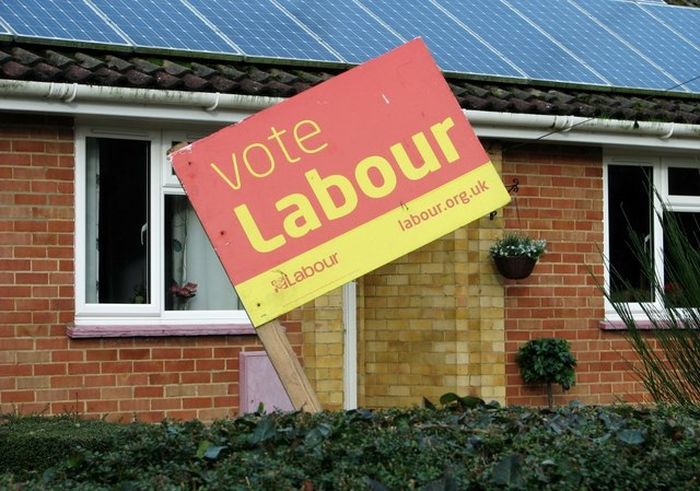The public sector’s misogyny crisis
Following a recent pattern of misogyny scandals within the public sector, Lauren Cotter questions their ability to hold abuse to account

On September 12th, the British Journal of Surgery’s publication on the sexual assault, sexual harassment and rape of surgical employees by colleagues in the NHS made headline news. An observational study which surveyed 1704 members of the UK’s surgical workforce brought to light stark figures representing the extent of sexual misconduct in one of the world’s most celebrated fields of work. However, closer examination of the BJS report, alongside the Baroness Casey Review (published in March) which established the “institutional racism, sexism and homophobia” of the Met Police, proves not only the endemic problem of sexual misconduct in the public sector, but also the haunting disregard many at the top have taken towards allegations.
“scepticism of both public services’ responses to allegations of such ingrained sexual misconduct and sexist attitudes is to be expected”
Sexual misconduct in the UK workforce has been much publicised in recent weeks. A joint investigation by Channel 4 and The Times, uncovering allegations of rape, sexual assault and abuse by comedian-turned-conspiracist Russell Brand, adds Brand to an extensive list of British celebrities caught abusing their position of power. However, the article published on September 19th also raises serious questions about the lack of regard shown by media bosses towards the reported sexual misconduct of Brand, after concerns were raised by colleagues. Nevertheless, as the BJS report dictates, sexual misconduct in the workplace is not merely a private sector problem but something which has infected the UK’s beloved-but-collapsing public sector – including the NHS.
The BJS report found that, among other harrowing statistics, over the past five years 63.3% of surgeons identifying as women had reported being the target of sexual harassment, as well as 23.7% of men, with 29.9% of women reporting sexual assault and 0.8% reporting rape. However, this review is but one of many made in recent years which highlight the failure of the NHS in protecting (predominantly female) staff from sexual misconduct; a British Medical Association report made in 2019 proved the dangers of inherent sexism in the NHS workforce. Moreover, organisations set up in the wake of such publications have emphasised the trepidation of many victims to report their allegations, some of whom turn instead to anonymously sharing their stories in hopes of raising awareness.
“sexual misconduct in the workplace is not merely a private sector problem”
This is hardly surprising of course, given that the BJS publication also highlighted the staff’s strong distrust of accountable organisations (such as NHS Trusts, the GMC and the BMA) to adequately deal with the perpetrators of sexual misconduct. Furthermore, the views of certain professionals such as Dr Peter Hilton – who, considering the report’s findings, argued that the “snowflake generation of young doctors” needed to “toughen up” – emphasise the rampant indifference of many in positions of power to take action against sexual harassment and assault in the workplace.
The recent review into the Met Police following the widely publicised case of Sarah Everard in 2020, who was raped and murdered by a serving Met police officer, and the conviction of the Met’s own serial rapist David Carrick for 85 offences, further draws attention to the magnitude of sexual misconduct across the public sector in the UK and the lack of seriousness with which allegations have been taken. According to the Casey Review, one in ten female officers had been “sexually harassed or assaulted” by colleagues; of course, the findings of the report did not only find allegations of sexual misconduct, but also called to light the failure of managers to tackle “institutional racism, sexism and homophobia” among an 82% white and 71% male force.
With these recent reports has obviously come response from the services, with the NHS publishing a ‘Sexual Safety Charter’ days before the release of the BJS report, which claims to provide “commitments to provide staff with clear reporting mechanisms, training, and support.” Moreover, the Met published their ‘Turnaround Plan’ to reform the force by 2025 and provide “More Trust, Less Crime and High Standards.”
Nevertheless, scepticism of both public services’ responses to allegations of such ingrained sexual misconduct and sexist attitudes is to be expected, especially when the Met Commissioner Sir Mark Rowley himself disputed the term ‘institutional’ to describe the Met’s failings. Indeed, with the seemingly ever-increasing list of publications which expose the extent of sexual misconduct within UK institutions, questions must be asked about the ability of these collapsing and underfunded public services to adequately address such endemic issues and take seriously the allegations of their staff. After all, at least until 2020, men with the attitudes of Peter Hilton have been in NHS employ, and ‘hundreds’ of rouge police officers are yet to be sacked.
 Comment / Cambridge students are too opinionated 21 April 2025
Comment / Cambridge students are too opinionated 21 April 2025 Comment / Does the AI revolution render coursework obsolete?23 April 2025
Comment / Does the AI revolution render coursework obsolete?23 April 2025 Comment / Cambridge’s tourism risks commodifying students18 April 2025
Comment / Cambridge’s tourism risks commodifying students18 April 2025 News / News in brief: campaigning and drinking20 April 2025
News / News in brief: campaigning and drinking20 April 2025 Interviews / Meet the Chaplain who’s working to make Cambridge a university of sanctuary for refugees20 April 2025
Interviews / Meet the Chaplain who’s working to make Cambridge a university of sanctuary for refugees20 April 2025






